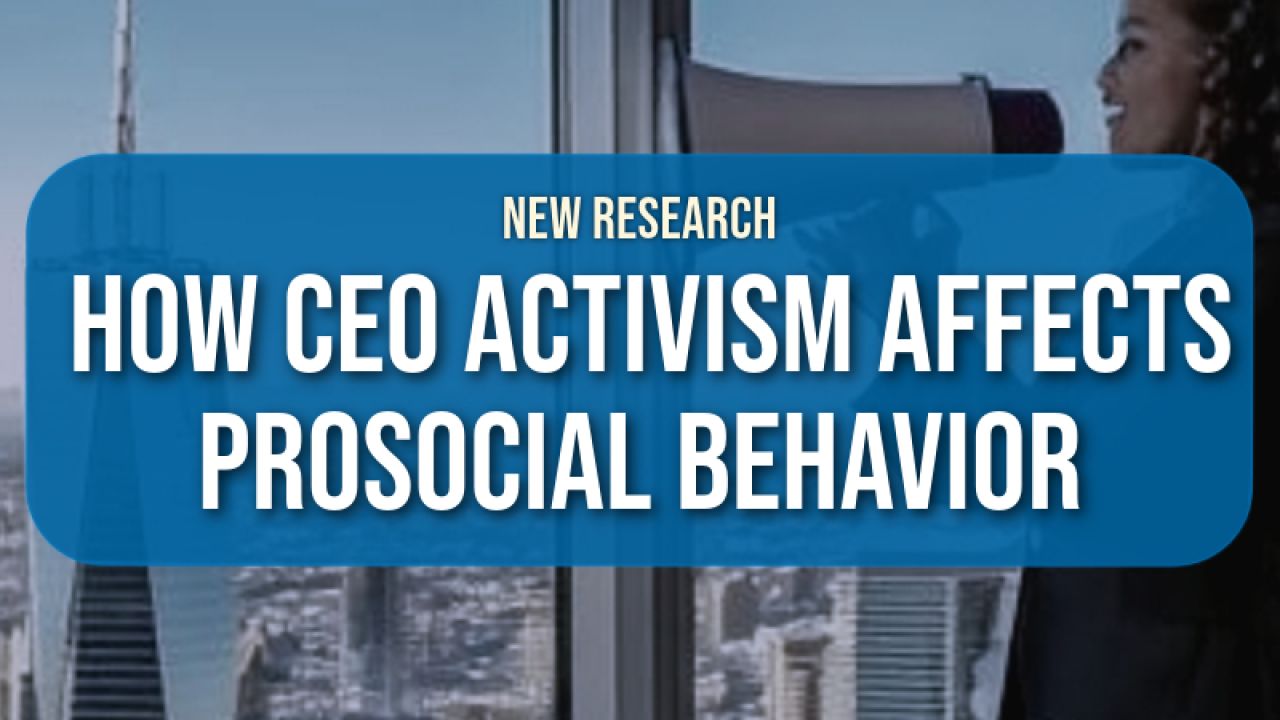February 18, 2025
Communicators, strategy can help CEO activism drive prosocial behavior among employees

CEO activism has emerged as a new trend in business practices, as public trust in government has declined over the past decades. The public is now turning to large corporations and corporate leaders to take action on social issues.
With this shift, we are seeing corporate leaders addressing a variety of social-political issues such as abortion, climate change, the COVID-19 pandemic, gender equality, gun control, and racial discrimination. Simultaneously, there has also been a rise in employee activism, as workers strive to engage collectively against their companies’ unethical business practices.
Our project wanted to explore how CEOs communicate their social actions to stakeholders (such as employees) and how they could be improved upon.
The key takeaways from Study I (a content analysis) examining statements from CEOs of Fortune 500 companies published from 2017 to 2023 are:
-
Corporate leaders were more vocal about social issues, especially since 2020.
-
CEOs minimized their personal anecdotal stories by presenting their statement as a corporate statement (non-narrative style) to align with their company’s values and other stakeholders’ beliefs rather than their own.
-
CEOs’ statements highlighted pursuit of positive outcomes (promotion-focused messages) rather than avoidance of negative outcomes (prevention-focused messages) to take advantage of the opportunity for their business growth by speaking out on social issues.
-
Not all leaders of the leading companies have spoken out, as more than half of them remain silent (i.e., suggesting strategic silence), as they may fear backlash from their activism communication if their actual behaviors do not align with what they have spoken out.
Additional insights from Study II (an online experimental study) with over 900 full-time employees from major industries in the United States, published in Public Relations Review:
-
CEO’s narrative style (personal anecdotal stories from a first-person perspective) in activism message positively influenced employees’ perception on CEO activism as authentic and, in turn, their identification of the CEO as being prosocial (prosocial sensemaking process).
-
Employees who went through the prosocial sensemaking process were likely to engage in collective action intentions to support the social issue addressed in their CEO’s activism statement and actively share aspects of about CEO activism with others beyond their companies.
-
The findings provide insights into how corporate leaders or CEOs can engage in strategic CEO activism communication to enhance positive outcomes and avoid negative consequences.
-
CEOs should use more strategic communication strategies in their activism by collaborating with communication professionals to design and apply message strategies like narrative style to CEO’s activism communication so that they can expand the positive impact of their activism communication both within and outside their companies.
For more information about this study, email Young Kim at young.kim@marquette.edu or Katharine Miller at katharine.miller@marquette.edu. This project was supported by a 2023 Page/Johnson Legacy Scholar Grant from the Arthur W. Page Center.
